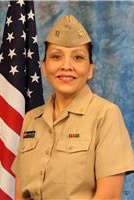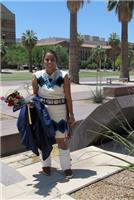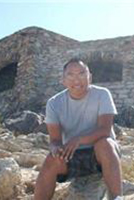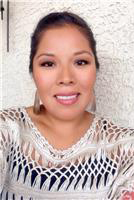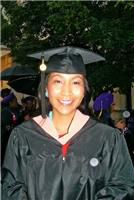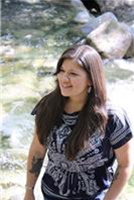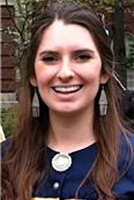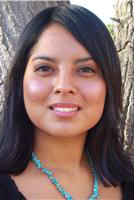Southwest Tribal NARCH (Native American Research Center for Health)
The Southwest Tribal NARCH Program is part of a national initiative established in partnership with the Indian Health Service and the National Institutes of Health.
The Southwest Tribal NARCH supports partnerships between Southwest tribes/tribal organizations and academic institutions to conduct public health research. The NARCH program is comprised of three components:
NARCH Administrative Core (PI: Dr. Kevin English)
The Administrative Core contributes to health promotion and disease prevention among Native Americans by actively engaging 27 Southwestern tribal communities in dialogue through the Community and Scientific Advisory Council, through partnerships with Albuquerque Area Indian Health Board consortium tribes, and through the promotion of ethical research via the Southwest Tribal Institutional Review Board (IRB).
NARCH Student Development (PI: Dr. Kevin English)
The student development program has four specific aims: to develop health science internship opportunities for American Indians (AIs) in higher education; provide financial assistance and social support to AI graduate students in health science degree programs; provide health research skills training for tribal community researchers; and develop an innovative seminar series for AI high school students to promote student recruitment, student retention, and to promote health science careers.
The primary purpose of an institutional review board (IRB) is to protect the rights and welfare of people who participate in research activities.
AAIHB Directors recognized the need to provide critically needed support for tribes to approve, require modification to, or disapprove all health research activities taking place in southwest tribal communities. At their March 2009 meeting, the AAIHB Board passed a resolution to establish the Southwest Tribal IRB to provide services to AAIHB and AASTEC research projects. Learn More
Research Project – Tribal Solutions for Youth Affected by Adverse Childhood Experiences (PI: Dr. Tassy Parker)
The goal of this formative project is to design and implement a culturally appropriate intervention that will improve the health and well-being of Native American youth affected by Adverse Childhood Experiences (ACEs). Behavioral Risk Factor Surveillance System (BRFSS) survey results reported that a high proportion of adults from New Mexican tribal communities had experienced adverse exposures during childhood. The link between adverse childhood experiences and poor health indicates the need for effective interventions during childhood to prevent multiple physical and behavioral health problems throughout the life course. The research team is comprised of the Southwest Tribal NARCH staff: Rachell Tenorio (Santo Domingo) – Coordinator; Chanda Duncan (Navajo) – Research Assistant; and UNM Institute for Indigenous Knowledge and Development (IIKD) staff: Nathania Tsosie (Navajo) – Data Analyst; Micah Clark (Navajo) – Research Assistant; Kyle Smith (Navajo) – Research Assistant.
NARCH Success Story #1 (Student Development)
Increasing numbers of Native American students are poised for academic success. Since 2009, the Southwest Tribal NARCH Student Development program has funded 31 Native students attending 17 different universities. At the end of 2014, advanced degrees were awarded to 12 Southwest Tribal NARCH scholarship recipients attending nine universities throughout the country.
NARCH Success Story #2 (Public Health Research) 
The Tribal Solutions for Youth Affected by Adverse Childhood Experiences (ACE) pilot research project breaks new ground by partnering with tribal communities to identify sources of strength and resiliency to address the impact of ACE.
Southwest Tribal NARCH VII Staff:
Principal Investigator: Dr. Kevin English
Program Manager: Eudora Claw (Navajo/ Zuni Pueblo)
Administrative Assistant: Delrae Peterson (Navajo) and Anne Pesata (Jicarilla Apache)

